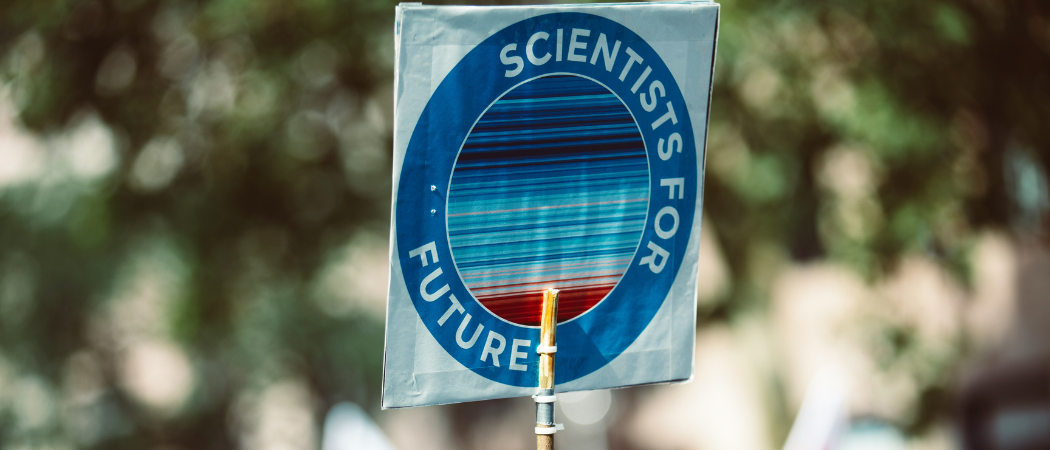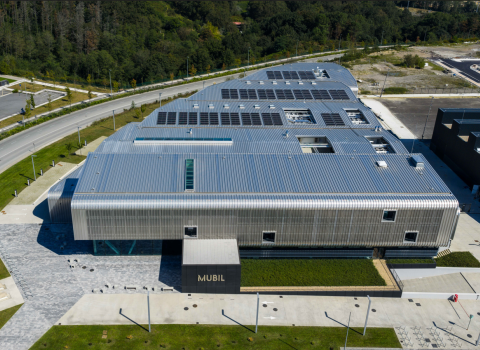Framework Programme 10 must support cross border collaboration to address the global scope of climate change

Photo credits: Markus Spiske / Unsplash
Climate researchers are calling for more backing to develop new technologies and collaborate across borders as they set out positions on how the next research programme, FP10, should be shaped to support their work.
This would advance the aim of EU research commissioner Ekaterina Zaharieva to increase Europe’s competitiveness by attracting more start-ups and scale-ups to take part in FP10.
“We believe that fostering advancements in low-emission technologies and supporting their adoption across industries will be key to meeting the EU’s climate goals and ensuring global competitiveness,” said Gemma Pallàs Pujadas of bound4blue, a start-up which is developing advanced automated sails that will enable ships to revert to being powered by wind energy.
Pujadas said that while the FuelEU Maritime Regulation, which targets the maritime transport industry, aligns with the company’s technologies, she would like to see SMEs benefit from more funding and technical support from EU research programmes.
Similarly, the European Sustainable Energy Innovation Alliance (ESEIA), which brings together organisations including Ljubljana-based Jožef Stefan Institute and Graz University of Technology, is calling for FP10 to promote climate projects with “a high degree of scientific ambition and risk.”
Adel El Gammal, secretary general at the European Energy Research Alliance (EERA), explained that support for disruptive innovation is essential to move forward with the green transition, but the EU needs to specialise.
“The EU is unlikely to build industrial leadership on all technologies and should instead focus on a [smaller] set of critical technologies,” he stated.
That is in line with the International Energy Agency’s (IEA) call for Europe to set out a new industrial master plan. “De-risking strategies should be developed for critical technologies where the competitiveness gap is unlikely to be bridged,” IEA says.
According to the IEA, about 35% of the cuts in CO2 emissions needed for the energy sector to reach net zero by 2050 will come from technologies that are still under development. For these to move past the pre-commercial stage, researchers need money.
As El Gammal noted, that points to the need for substantial investment in collaborative research that fosters industrial cooperation and enables “the accelerated scaling of clean technologies and generat[es] collective spillover effects for climate solutions.”
EERA has welcomed MEPs’ call for the FP10 budget to be €220 billion, more than double the Horizon Europe programme, and wants more than the 35% of the budget it gets in Horizon Europe to be earmarked for climate objectives in FP10.
Meanwhile, amongst recommendations it issued this summer, France’s National Centre for Scientific Research said that the research enterprise needed to cut its carbon footprint. To do that, FP10 rules for eligibility of expenses should consider a “buy less and buy better” approach by establishing an eco-bonus to promote the maintenance and repair of equipment and the use of second-hand equipment.
While a related directive entered into force last July, Poland, which is about to take the presidency of the EU Council, could push for more of such bonuses.
“There is this myth in Brussels in particular – probably more than anywhere else, that Poland is climate sceptical. That’s not true,” said Agnieszka Bartol, permanent representative of Poland to the EU, at a recent conference, noting Poland had pledged to reach carbon neutrality by mid-century.
“In terms of implementation, however, we think that we should pass from penalties and obligations to incentives and rewards,” she added.
Between January and June 2025, Poland will seek to make the R&I space more inclusive by promoting collaborations with partners.
On that note, EERA is advocating for a case-by-case approach to partnerships with third countries which, as El Gammal pointed it out, is especially relevant to climate research given climate change is “a global issue requiring international synergies.”
Local and global
Sandeep Sen, a researcher at the University of Amsterdam’s Institute for Biodiversity and Ecosystem Dynamics, has Horizon Europe funding to investigate the interplay between geological change caused by the Himalayan uplift with climate change and plant diversification. Based on his experience working in the Himalayas and Western Ghats of India, he stressed the importance of local anchoring.
“Climate-related projects in the future should have a regional focus, because the impacts of climate change are often shown on a small regional scale before they expand,” he told Science|Business. “A timely understanding and tracking of such events is important for regional and national policymaking.”





 A unique international forum for public research organisations and companies to connect their external engagement with strategic interests around their R&D system.
A unique international forum for public research organisations and companies to connect their external engagement with strategic interests around their R&D system.